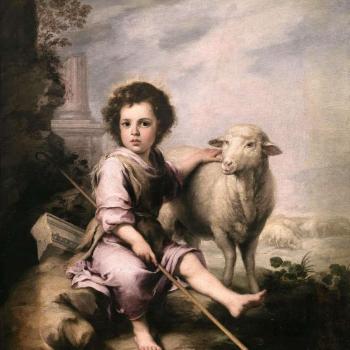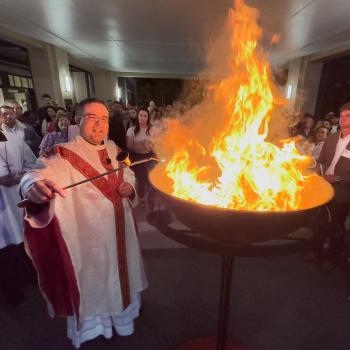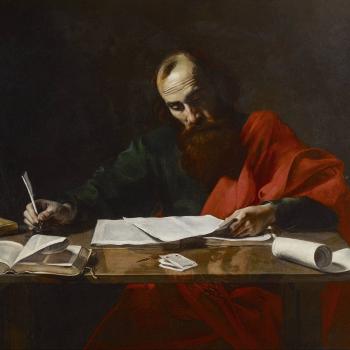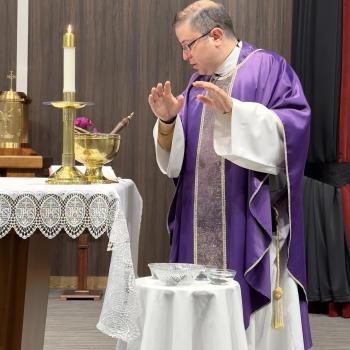Bring to mind the image of a toddler walking through the park holding on tight to his father’s hand. That child has no worries or anxieties. Holding on to his father’s hand, he feels safe. He trusts that he will be taken to a good place and not to a place of danger. The toddler places all his trust in his dad, though the boy has no idea where he’s going, but he does know all will be OK.
Just a few short days from the celebration of Christmas, today’s Gospel passage from Matthew tells us of two people who placed their unconditional trust in their heavenly Father. Despite their fears, their questions and their anxieties, they trusted.
First, Mary had to trust that even though she was a virgin, she would bear a child by the Holy Spirit. Mary trusted, and it was done to her as the angel said. She was free to reject Gabriel’s message, yet she trusted in God and her trust gave us a Savior.
Second, Joseph had to trust that Mary’s pregnancy was indeed by the Holy Spirit and not by someone else. Joseph trusted, and received Mary into his home as his wife. He could have easily divorced her quietly and moved on with his life, but he trusted in God and his trust allowed God’s plan of salvation to unfold.
In their lowliness and poverty, Mary and Joseph trusted in God’s divine plan for them. During the cold night in Bethlehem when they had no place to stay, Mary and Joseph trusted that God would lead them to safety. Mary and Joseph showed the same trust a toddler shows when holding on to his father’s hand. Mary and Joseph are an example of surrendering to God, trusting He will provide and lead you to safety.
As a contrast we see in the first reading Ahaz, King of Judah, who did not trust in God’s divine plan. Ahaz had turned away from God by worshipping other gods and was considered wicked by faithful Jews. Here’s a bit of history to better understand the passage from the prophet Isaiah:
King Ahaz refused to ally himself with Israel and Syria against the Assyrians, so the much larger armies of Syria and Israel invaded his kingdom. Terrified, Ahaz made a pact with the Assyrians, his enemies, to help him. At the same time, the prophet Isaiah went to Ahaz with a message from God: that if he trusted in God, his kingdom would be spared from war.
Prideful Ahaz was not interested in putting his trust in God; he preferred to put his trust in his own abilities and in the Assyrian army. In the reading today, we heard how Isaiah went to Ahaz and told him to ask for a sign in order to prove that God’s promise was true. Ahaz was not interested, but he hides his lack of trust very piously saying, “I will not ask! I will not tempt the Lord!” Ahaz is being far from pious or God-fearing. He will not ask for a sign because he does not want to place his trust in God. He doesn’t care.
This wearies God, yet God still promises a sign. A son would be born from a virgin, a young woman.
Ahaz chose not to hold is father’s hand because he thought he knew a better way to safety. He relied on the power of his own army and failed. His son, the faithful king Hezekiah, born of a young woman, restored the glory of the Kingdom of Judah proving that God was faithful to his people. Centuries later, Christians found in this prophecy an announcement of the coming of Jesus, the true Emmanuel, God with us.
To trust someone, be it another person, God, or even yourself, is difficult.
To trust requires great love.
To trust is a risk because we lose control.
To trust as Mary and Joseph did is to place yourself in the hands of another, to be exposed; not to do your will, but the will of another.
May the end of this Advent season be a time to reaffirm our trust in Our Savior, who lovingly comes to meet us as Emmanuel, God with us. Hold his hand without fear, trusting he will lead you to restful waters and green pastures.
















